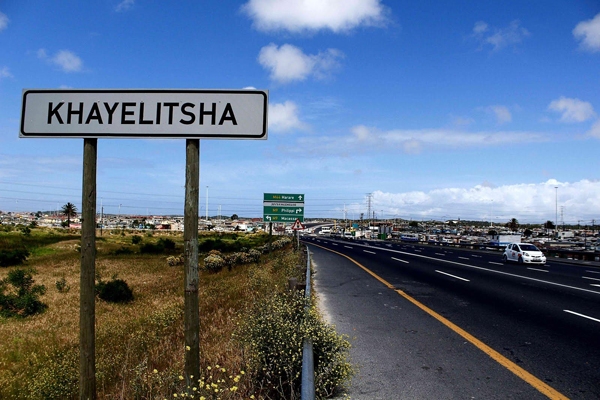

A high rape rate is of deep concern to organisations working in Khayelitsha. Photo by Masixole Feni.
20 October 2014
Between two and three rapes are reported every day to a single centre in Khayelitsha. And the numbers will probably rise at the end of the year.
According to Rape Crisis Cape Town, only one in 13 survivors report rape, so for every three rapes reported, 36 other people were probably raped but chose not to report it.
Genine Josias is the medical coordinator of Khayelitsha Hospital’s Thuthuzela Forensic Centre, formerly known as Simelela. She says the numbers of rapes reported tend to go up at the end of the year.
“We average about three rapes a day in peak months like December and two to two and a half on a daily basis.”
About two cases of rape a month are reported directly to the Treatment Action Campaign (TAC), says the organisation’s Khayelitsha co-ordinator Mandla Majola.
He says, “People don’t report rape because of stigma and the backlash or discrimination that they get from the community. Victims are threatened by the perpetrators. Sometimes cases can drag for years and people are not prepared to go to court every month.”
He says at a recent workshop attended by TAC, the South African Police Services (SAPS), Thuthuzela Clinic, Nonceba Family Counselling Centre and the provincial health department, the police highlighted the frequency of a relationship between the victim and the rapist.
“A father or stepfather raping a daughter, a neighbour raping another neighbour or a an uncle raping a niece: police say these are the rapes that most of the time go unreported, especially if these rapes involve young children. The worst thing is when a family member is involved, the issue is usually discussed among the family and not heard by anyone else. Justice is not done and the perpetrator can go on and do the same thing over and over,” says Majola.

Site C in Khayelitsha is one of the rough areas in the township where rape is frequently reported. Photo by Masixole Feni.
He refers to a case last month in Harare when an eight-year-old girl was raped by her 15-year-old cousin.
“The neighbours realised that there was something wrong with the child’s behaviour when she played with other children. The child’s mother had passed away and she was in the care of her aunts and uncle. One of the aunts told the neighbours that she suspected that the 15-year-old boy was abusing the girl but they were too afraid to confront the boy, because the boy’s father was a taxi driver who was feared by many in the community,” he says.
The neighbours had brought the story to TAC “and we in turn took the matter to the Nonceba Family Counselling Centre”, he says.
Josias confirms that most rapists are known to the survivors. It is difficult raising awareness about safety when the danger is in people’s own homes or in the homes of friends or the homes of the rapists, she says.
“During our outreach activities through NGOs and community care workers, we highlight this point. We also mention women leaving very early for work and arriving late from work, where the transport they have to use is far from their homes. We also caution about their drinks being spiked and them then being unaware of what is happening around them.”
In the Western Cape in 2013-14, according to police statistics, just under 19% of reported rapes were committed by friends of the victim, 18% by acquaintances, and 14% by boyfriends or ex-boyfriends.
The lack of electricity in informal settlements is a problem, Majola says.
“This breeds crime and rape because it is easy for people to be targeted.”
Another problem highlighted by the police is that many shebeens and taverns stay open after official closing hours.
“For example, if the shebeen is licensed to close at 12am, you will find that patrons are still served alcohol at that time, when the place is supposed to be empty and closed,” says Majola. “So you find that patrons start heading home at 2am, and when they are drunk they are targets. There is a very big issue of alcohol in Khayelitsha.”
Majola says gangsterism in Khayelitsha is also a problem, because gangsters target the vulnerable, like young women and girls.
Most survivors of rape are over 18, says Josias, but the Centre also deals with many “suspected” rapes, where a caregiver or parent brings in a child because of suspicious symptoms.
She says about one quarter of people who come to the Centre after a sexual offence are in this category, and 90% of them younger than seven years old.
The Centre also sees cases of attempted rape, which make up about 10% of the sexual offences cases treated there.
Majola urges residents of Khayelitsha to play a bigger role in reporting crime and rape.
“We cannot do anything if the community does not help us. We need them to stand up against crime. I have suggested to TAC that we set up community action teams, who will work closely with communities and spread awareness, because what we have also found is that some people do not classify a husband or boyfriend forcing themselves on them as rape.
“We need more education.”